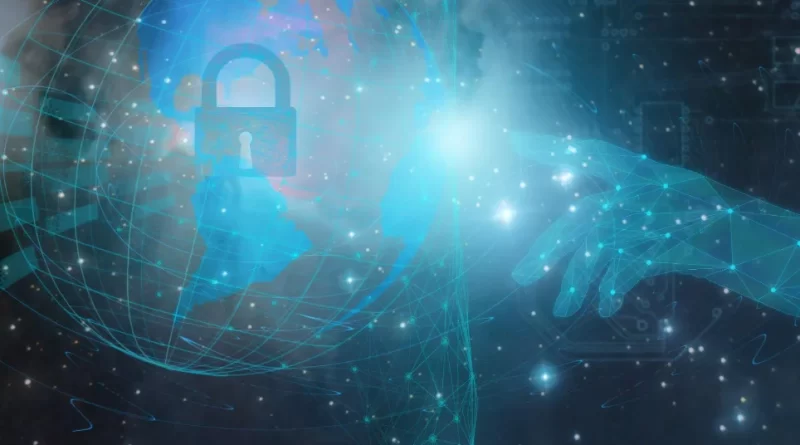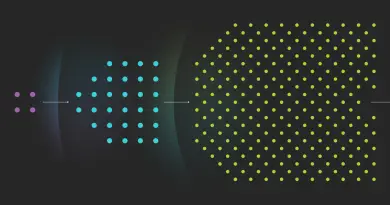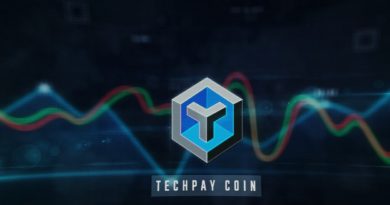Generative AI Revolutionizing Blockchain: Unleashing Potential and Ensuring Security
This article delves into the disruptive power of generative AI in the blockchain industry. Discover how ChatGPT and other AI models revolutionize smart contract coding, automate execution, bolster security, and enhance user education. From improving efficiency to mitigating risks, the potential of generative AI in blockchain is explored in depth, along with the challenges and future outlook for this transformative technology.
Generative Artificial Intelligence (AI) has witnessed a remarkable surge in adoption across various industries, revolutionizing content generation and fueling unprecedented excitement. With the advent of advanced models like ChatGPT, generative AI technology has found applications in query resolution, content creation, appointment scheduling, image generation, coding assistance, and much more. As the immense disruptive potential of generative AI unfolds, its impact on established tech giants like Google is becoming increasingly apparent. While the focus has primarily been on the applications of generative AI in different sectors, it is crucial to explore its implications for blockchain technology itself.
Improving Smart Contract Coding
Smart contracts, a pivotal innovation in the blockchain industry, facilitate automated transactions without the need for intermediaries. These contracts play a crucial role in enabling the decentralized nature of blockchain. However, there is ample room for improvement, and generative AI, exemplified by ChatGPT, can significantly contribute to this endeavor. By assisting in the development and testing of underlying code, generative AI streamlines the creation of smart contracts for developers. Smart contract coding in languages like Solidity is intricate and error-prone, often requiring extensive manual coding. Leveraging natural language processing capabilities, ChatGPT enables developers to define code using natural language, automating the coding process. This approach enhances efficiency, reduces errors, and improves the overall quality of smart contract code.
Developers can utilize generative AI models like ChatGPT to generate code snippets based on natural language descriptions, simplifying the coding process. For example, instead of manually writing hundreds of lines of code, developers can express their desired code in natural language, allowing ChatGPT to perform the actual coding. This approach not only speeds up the development process but also minimizes the potential for errors. Furthermore, ChatGPT can analyze the natural language inputs and provide suggestions for corrections or improvements, enabling developers to enhance their existing codebases.
Automating Smart Contract Execution
Generative AI, represented by ChatGPT, can automate the execution of smart contracts, thereby enhancing efficiency and accuracy. Through the analysis of contract-generated data, ChatGPT can identify errors in the code, alerting developers to make necessary corrections. By automating monitoring tasks, this approach significantly accelerates the execution of smart contracts.
Automated execution powered by generative AI also opens doors to optimizing smart contract performance. ChatGPT can analyze trends in contract data, providing valuable insights and suggestions for optimization. By identifying patterns and correlations, generative AI can recommend improvements to enhance execution speed and reduce associated gas fees. This not only benefits developers but also contributes to the overall scalability and cost-effectiveness of blockchain networks.
Securing Blockchain Transactions
Despite its reputation for immutability and high security, the blockchain ecosystem is not impervious to threats. The vulnerabilities include 51% attacks, insider threats, and cyberattacks. Generative AI, like ChatGPT, can be instrumental in mitigating these risks. By employing generative AI to analyze network traffic, it becomes possible to detect unusual activities, including attempted hacks and suspicious transactions. Monitoring social media platforms allows for the identification of discussions related to vulnerabilities and attacks. Additionally, generative AI can analyze network behavior to detect patterns indicating potential insider threats, alerting administrators for further investigation. These applications of generative AI bolster the security of blockchain transactions.
Generative AI models can also contribute to the improvement of cryptographic techniques utilized in blockchain networks. By leveraging the power of AI algorithms, it is possible to identify potential vulnerabilities in encryption algorithms and propose enhancements. Furthermore, generative AI can aid in the detection and prevention of double-spending attacks, ensuring the integrity of blockchain transactions.
Educating Users
The widespread adoption of ChatGPT in the blockchain industry is primarily driven by its extensive utilization for user education. Prominent cryptocurrency companies have integrated generative AI technology to create their own AI chatbots, serving as valuable educational resources for users. For instance, Binance, one of the leading exchanges, has developed an AI chatbot called Sensei for its Binance Academy education portal. Sensei provides real-time updates on market changes, token prices, and project updates, empowering users with the latest information.
Another notable example is Crypto.com’s AI companion, Amy, designed to inform users about market fluctuations, project updates, and token prices. These AI companions enhance user experience and knowledge dissemination, facilitating informed decision-making in the cryptocurrency ecosystem.
In addition to chatbot applications, generative AI has been integrated into blockchain platforms themselves. Solana, as a layer-1 blockchain, introduced a ChatGPT-based plugin that enables users to interact with the network through conversational prompts. This plugin facilitates various tasks, such as NFT purchases, token transfers, transaction analysis, and price discovery. Furthermore, it provides detailed descriptions of NFTs, including their utility and collection information. Similarly, Astar Network has developed its AI assistant, Astari, powered by ChatGPT. Astari possesses extensive knowledge of the Astar Network, offering explanations, code examples, news updates, and comprehensive insights into the network’s functioning. This integration of generative AI enhances user education and empowers them with a deeper understanding of blockchain technology and its applications.
Generative AI in Blockchain: Challenges and Future Outlook
While generative AI exhibits immense potential in blockchain, several challenges must be addressed to fully harness its benefits. One key challenge is the need for greater accuracy. While generative AI models like ChatGPT have achieved remarkable results, ensuring absolute accuracy in complex blockchain environments is essential. Continuous research and model improvements are necessary to overcome this challenge.
Another critical concern is the issue of bias. Generative AI models are trained on large datasets, and biases present in the training data can impact the generated content. Bias mitigation techniques, rigorous data curation, and diverse training datasets are crucial for ensuring fair and unbiased outputs.
Safety and security are paramount in blockchain systems. The integration of generative AI must be approached with caution to prevent potential vulnerabilities that could be exploited by malicious actors. Rigorous testing, auditing, and comprehensive security measures should be implemented to address these concerns effectively.
Looking ahead, the future of generative AI in blockchain holds immense promise. Innovators and researchers are actively exploring ways to enhance accuracy, reduce bias, and ensure the safety of generative AI models. As these challenges are overcome, generative AI will continue to drive advancements in the blockchain industry, leading to more secure and efficient smart contracts, improved educational resources, and enhanced user experiences.
Generative AI, led by ChatGPT, has emerged as a transformative force within the blockchain ecosystem. By facilitating streamlined smart contract coding, automating contract execution, strengthening transaction security, and empowering user education, generative AI has unlocked new possibilities for the blockchain industry. While challenges exist, the resilience and innovative spirit of the industry will undoubtedly surmount them in the long run. As the adoption of generative AI expands and evolves, stakeholders across the blockchain ecosystem will benefit from increased efficiency, heightened security, and enriched knowledge dissemination.




